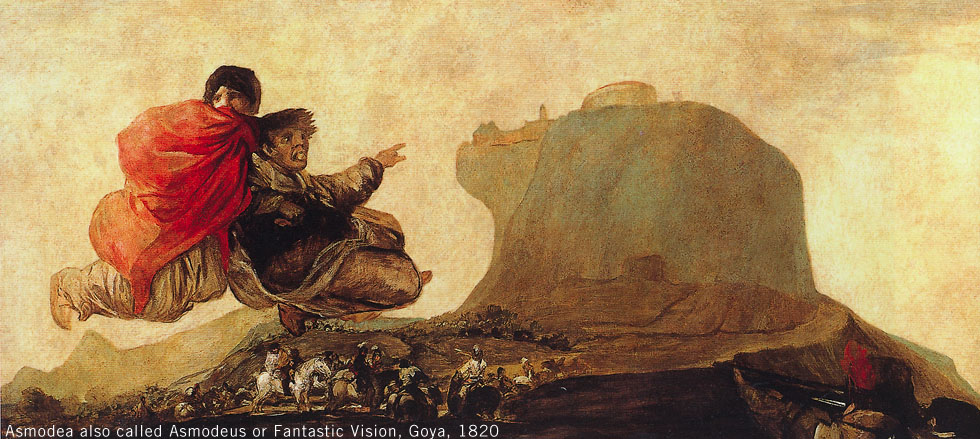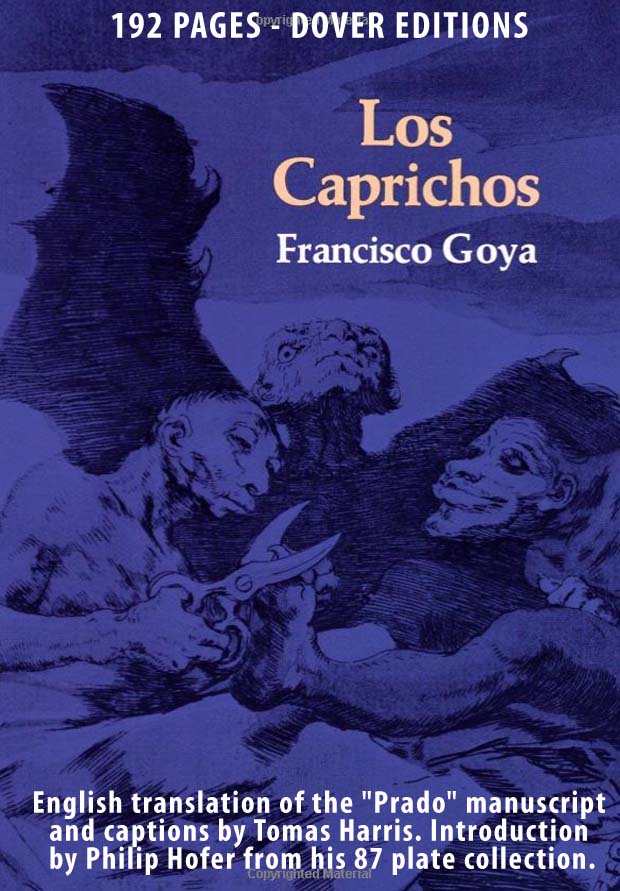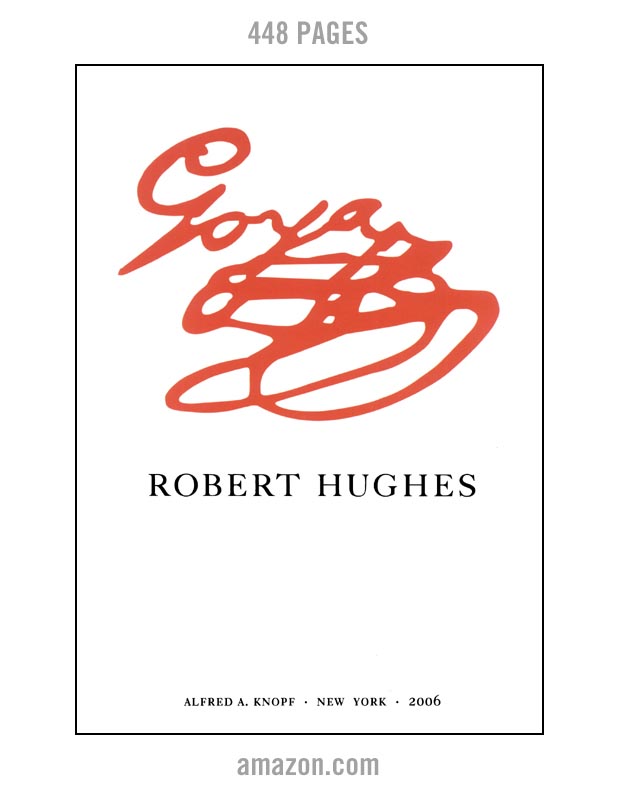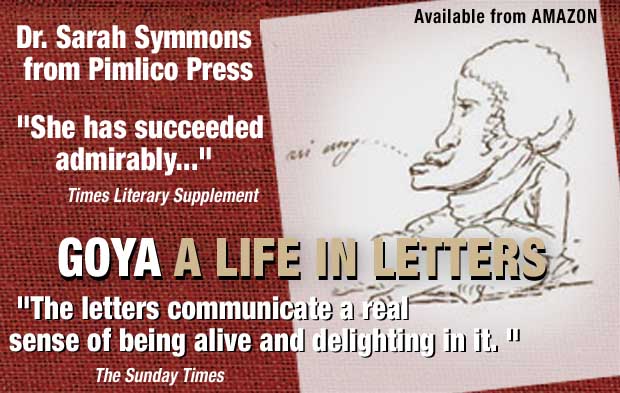Goya | The Black Paintings - Asmodea
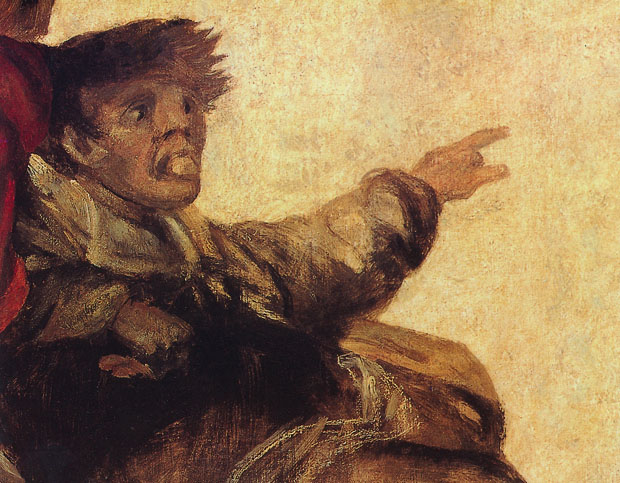
The Black Paintings
Asmodea
also called
Asmodeus
Fantastic Vision
1820-23 Oil on gesso transferred to linen
123 cm x 165 cm
48 1/2" x 104 1/4"
Museo del Prado Madrid Spain
Xavier de Salas dates this painting 1790-1795 in his book Goya, Mayflower Books, 1978.
Sarah Symmons (in her book, Goya, Phaidon Press, 1998) dates this painting to 1791-2.
"Despite its nightmare imagery, this is a radiantly beautiful painting. It is infused with golden tones, interspersed with blue-silver, and punctuated with two isolated areas of red. The massive rock appears hazy and insubstantiated beside the solid mass of the two figures flying by. It is not clear whether the two soldiers are shooting at them or at the distant horsemen."
From Patricia Wright book Goya, Phaidon Press, 1998, page 128)
AMAZON
Goya The Terrible Sublime - Graphic Novel - (Spanish Edition) - Amazon
"From this headlong seizure of life we should not expect a calm and refined art, nor a reflective one. Yet Goya was more than a Nietzschean egoist riding roughshod over the world to assert his supermanhood. He was receptive to all shades of feeling, and it was his extreme sensitivity as well as his muscular temerity that actuated his assaults on the outrageous society of Spain." From Thomas Craven's essay on Goya from MEN OF ART (1931).
"...Loneliness has its limits, for Goya was not a prophet but a painter. If he had not been a painter his attitude to life would have found expression only in preaching or suicide." From Andre Malroux's essay in SATURN: AN ESSAY ON GOYA (1957).
"Goya is always a great artist, often a frightening one...light and shade play upon atrocious horrors." From Charles Baudelaire's essay on Goya from CURIOSITES ESTRANGERS (1842).
"[An] extraordinary mingling of hatred and compassion, despair and sardonic humour, realism and fantasy." From the foreword by Aldous Huxley to THE COMPLETE ETCHINGS OF GOYA (1962).
"His analysis in paint, chalk and ink of mass disaster and human frailty pointed to someone obsessed with the chaos of existence..." From the book on Goya by Sarah Symmons (1998).
"I cannot forgive you for admiring Goya...I find nothing in the least pleasing about his paintings or his etchings..." From a letter to (spanish) Duchess Colonna from the French writer Prosper Merimee (1869).
GOYA : Los Caprichos - Dover Edition - Amazon

